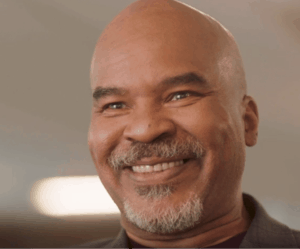How Improv Can Help You Be a Better Boss
According to a Harvard Business Review article, most leadership training is too passive and does not adequately prepare participants for real, potentially high-risk situations that they will likely face. Developing leadership skills, like anything else, requires practice to gain confidence and feel prepared when leader-ing in the wild.
The article states: “Most leadership trainings are about leadership — teaching ideas, sharing best practices, and increasing knowledge. Successful people rarely become better leaders because they know more. They become better leaders because they follow through on what they know.”
Follow-through requires, emotional courage, which is the willingness to feel the hard feelings that come when we take risks, break old patterns, and try new ways of acting. And that is how we become better leaders.
Listening to a lecture doesn’t do it. Even role plays aren’t so useful because they aren’t “real” enough — they might teach us the skills, but they don’t increase our bravery enough to use them in clutch situations. And that’s what matters.
On the other hand, taking risks in “real life,” before you’re ready, comes with potential consequences. Practicing skillful confrontation while you’re still developing your skill, could damage relationships with potentially dire repercussions in your work.
The solution? “Practice in situations where the perceived risk is much higher than the actual risk.”
Enter Improv
There is nothing more low-risk than playing improv games with colleagues. And while the exercises might seem superficial at first, they allow a safe space to feel vulnerable, take risks, embrace failure, and try again.
That’s why we’ve created The Feedback Loop (think Groundhog Day meets The Office), a workplace comedy series designed to help you get more stuff done with less drama. This series of comedic shorts follows a pair of well-intentioned, but flawed leaders who realize the only way to stop repeating the same terrible day at work is to act less like Michael Scott and more like Kim Scott by applying the principles of Radical Candor.
Each episode includes an after-episode cheat sheet you can use to keep the Radical Candor principles top of mind, and a playbook to help you deepen your learning by playfully practicing your feedback skills using improv-inspired exercises from The Second City. Because, let’s face it, no one wants to be bad at their job.
Inner thoughts of no one ever
- I love my incompetent team.

- I work really hard at doing a terrible job.
- The frustration I cause my colleagues fills my heart with joy.
- I hope I continue to embarrass myself and jeopardize my job.
- I like looking like a jerk.
This is why it’s important to stop recoiling at the idea of feedback. Feedback is not a dirty word. Clear, kind guidance improves performance, limits mistakes, and protects us from harm. Yet so many organizations are not investing in a culture of feedback. Instead they buy ping pong tables to increase employee engagement, wait for their underperforming employees to just quit, and hope their new messaging tools magically fix their siloed teams. There are no easy solutions, but ours is the most fun.
Our simple framework and playful practice acknowledge the awkwardness of these conversations and give individuals a compass to navigate when feedback-ing in the wild. Join us! Request a demo >>
A version of this article by Jenny Crowley, director of marketing at Second City Works, appeared on the Second City Works blog.
Improvising Radical Candor is a co-production of Radical Candor, LLC and Second City Works. By exercising Radical Candor through improvisation, teams learn the art of giving and receiving feedback while developing core improv fundamentals that emphasize skills like active listening, staying present and being others-focused.
